- 1Select Items
- 2Delivery Options
- 3Name & Address
- 4Further Details
- 5Discounts
- 6Payment
Hamnet (12A)
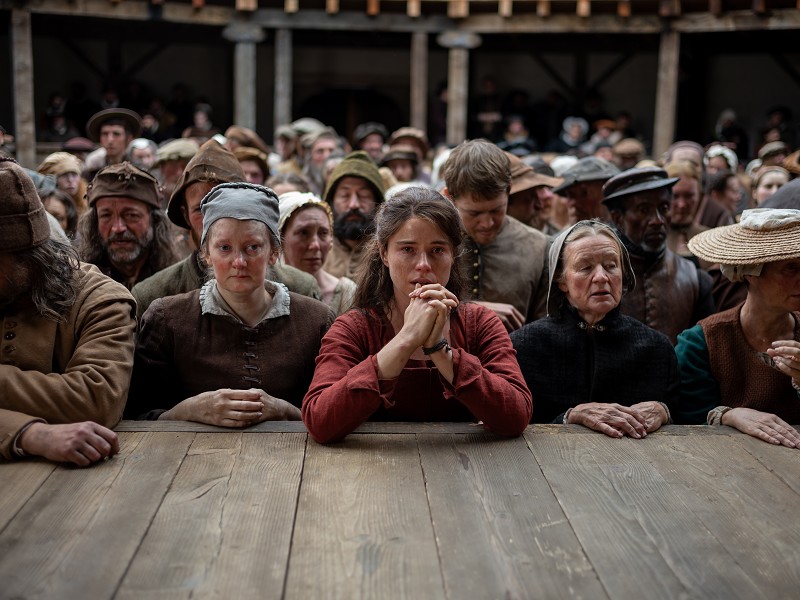
Book Tickets
Chloé Zhao offers an intimate take on the human story behind Shakespeare’s family in this stunning portrait of love, loss and endurance.
Agnes, a perceptive young woman with a deep connection to the land, is viewed with suspicion by her neighbours but forms an immediate bond with Will, a visiting tutor. Their relationship quickly becomes a marriage, and soon a growing family follows. While Will increasingly divides his time between home and London, Agnes holds the household together with the help of relatives. That fragile stability is tested when sudden illness strikes during one of Will’s absences, leaving Agnes to face the consequences alone.
Adapted from Maggie O’Farrell’s novel, the film is rooted in the textures of the natural world. Everything moves to its own patient rhythms, drawing power from everyday rituals and emotional undercurrents. Jessie Buckley gives a career-defining performance, capturing Agnes’s strength and vulnerability in devastating fashion. Paul Mescal complements perfectly, portraying Will as loving but distracted by ambition. Their chemistry makes the early warmth of the relationship feel genuine, which deepens the impact when tragedy arrives.
A moving, measured and quietly devastating reflection on how creation can ultimately emerge from intense sorrow.
Saipan (15)

Book Tickets
|
Unless you are a football fan, or Irish, or both, you may have to take it on trust that Saipan recounts a story of Earth-shattering significance — albeit with distinct ironising cheek.
This is a fictionalised account of the stormy rift between team captain Roy Keane and manager Mick McCarthy in the run-up to the Republic of Ireland’s matches in the 2002 World Cup.
There’s Keane (Éanna Hardwick), at this point playing for Man United, is in the prime of his career and is one of the best players in the Premier League. Then there’s McCarthy (Steve Coogan) – English born but with Irish roots and a proud sense of Irish heritage – knew that his trickiest player would be the legendarily difficult Keane, and so it proved.
To prepare for the tournament, and acclimatise to the heat and the time difference of Japan, the decision is made to travel to Saipan, the capital of the remote Mariana Islands for a week of training. The dispute between McCarthy and his most high-profile player and captain rumbles on for the entire week. An amusing vignette whether you’re a footie fan or not
The Housemaid (15)

Book Tickets
Paul Feig’s sly psychological thriller blends glossy camp with razor-sharp tension.
Sydney Sweeney plays Millie, a young woman desperate to outrun her past who lands a coveted live-in job with the affluent Winchesters. Amanda Seyfried’s Nina greets her as the picture of domestic refinement, but Millie’s arrival at the palatial estate quickly exposes fractures beneath the family’s immaculate surface.
Millie isn’t as spotless as she claims, yet Nina’s volatile mood swings and the icy scrutiny of mother-in-law Evelyn suggest the Winchesters have secrets of their own. Andrew Winchester provides a veneer of calm, though even his support hints at deeper complications. As the household’s perfect facade splinters, the story becomes a cutthroat game of manipulation, shifting power and buried histories, each woman masking motives the other can’t quite read.
Feig orchestrates the twists with playful style, leaning into glamorous mischief before steering the film into darker, gripping territory. Sweeney and Seyfried are electric together, their performances fuelling a seductive, surprising thriller about about dominance and self-assertion that keeps you guessing until its final, breathless reveal. This is one to see with a crowd
Is This Thing On? (15)
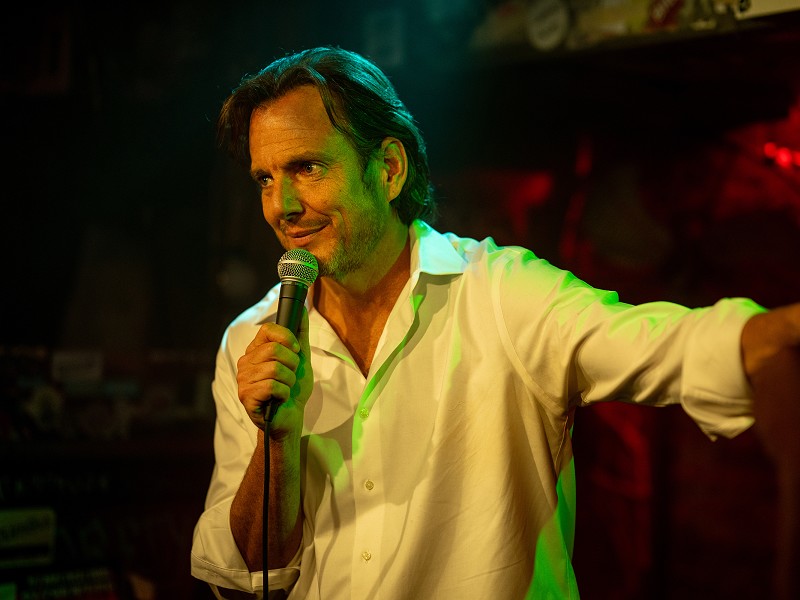
Bradley Cooper’s funniest film behind the camera, and yet also his most unexpectedly humane, Is This Thing On? is a charming delight.
Loosely inspired by one of our very own top comedians, John Bishop, the film opens with Alex (Will Arnett) and Tess (Laura Dern) calling it quits after 20 years; the spark has simply fizzled out. Before they’ve even told their friends – primarily Arnie (Cooper), a cartoonishly self-absorbed working actor – Alex has moved out of their suburban house and into a drab apartment downtown. Alex decides that a midlife crisis pursuit of stand-up comedy is in order.
Arnett, a long-time friend and former neighbour of Cooper, is a brilliant choice for this kind of tragicomic role. Anyone who watched Arrested Development will know him to be a comedic actor with remarkable emotional range.
Where Cooper’s first two films were fascinated with creative genius and the glare of celebrity (A Star is Born, Maestro), this is his first film to traffic in the ordinary, presenting an entirely believable and authentic family home life that collapses under the weight of inevitability.
Eleanor The Great (12A)
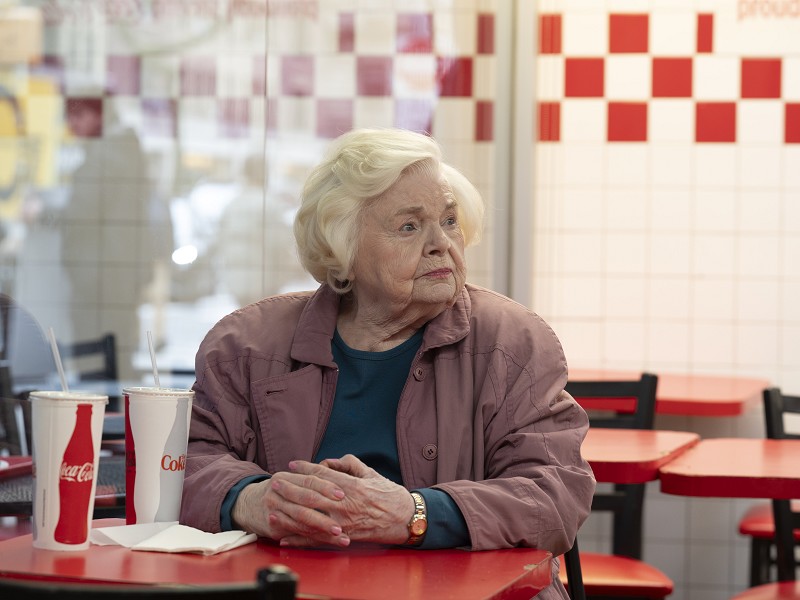
Book Tickets
|
June Squibb stars as a brassy older woman bonding with a chipper young college student, in Scarlett Johansson’s directorial debut.
Squibb plays Eleanor, a widow lady with a waspish way of speaking her mind to youngsters. She lives in Florida, sharing an apartment with her best friend Bessie (Rita Zohar). Eleanor finds herself at a support group meeting for Holocaust survivors. Eleanor is not Jewish, but Bessie was, and what’s the harm in telling her friend’s stories as if they were her own?
Nina (Erin Kellyman), a journalism student, is sitting in on the group to write an article, and she’s struck by Eleanor’s story. Since Eleanor could use the company, she gets drawn into a connection with Nina. Back in Florida, Eleanor and Bessie were obsessed with Roger (Chiwetel Ejiofor), a cable-TV newsman — and it turns out that Roger is Nina’s recently widowed father. The table is now set for Eleanor’s fake Holocaust story to go very public. Eleanor the Great is a tender film, with June Squibb on top form (as she always is), but there's something darker and deeper at play. The result? An ambitious and emotional dramedy.
Marty Supreme (15)

Book Tickets
Josh Safdie’s solo venture delivers a bruising, propulsive portrait of ambition.
Set in the early 1950s and loosely inspired by table-tennis icon Marty Reisman, Safide uses the world of competitive ping-pong as a springboard into a sharper study of American identity, class, and self-invention, built around a Oscar-hungry performance from Timothée Chalamet.
Marty’s rise begins with a breakout showing at the British Open, but his sights are set firmly on the World Championship in Tokyo. Getting there requires ingenuity of the least noble variety: hustling, grifting, and even a dog-napping that spirals into a wonderfully chaotic subplot. The result is a portrait of a man whose talent is matched only by his capacity for self-sabotage. His entanglements with Rachel, a childhood friend now trapped in a mess he refuses to acknowledge, and Kay, a faded Hollywood star married to the very tycoon Marty hopes will bankroll him, sharpen the film’s critique of charm weaponised as survival. Chalamet makes Marty both magnetic and exasperating, sustaining a performance of coiled energy.
The momentum never flags, and as Marty barrels toward Tokyo, Safdie crafts a character study as combustible as its antihero. It’s volatile, gripping, and impossible to look away from
E.T. The Extra-Terrestrial (U)
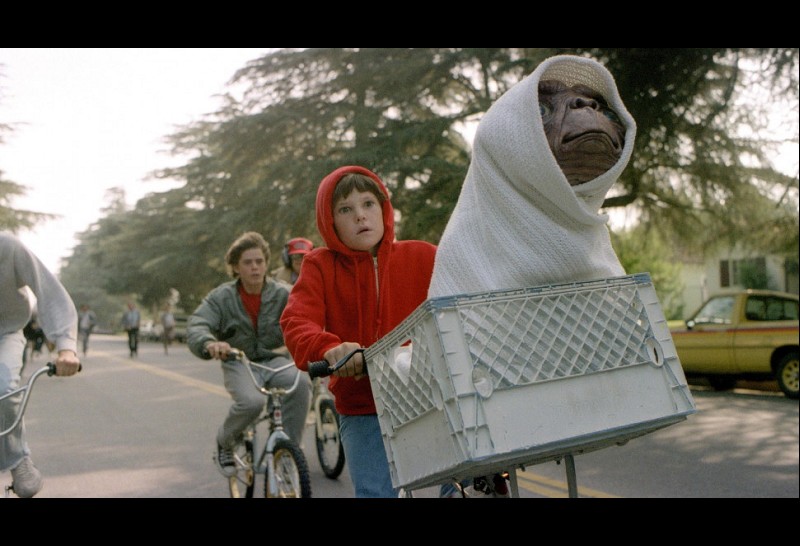
Book Tickets
|
The Spielberg classic returns to the big screen yet again, because why wouldn’t you want to take the family to see one of the greatest, most endearing American films ever produced?
That’s because the story of the little boy from a broken home who befriends an alien stranded on Earth - really is a masterpiece. The strange little creature is orphaned by the departure of his spaceship, visiting earth on some kind of botanic expedition, and he is left stumbling around in the undergrowth. But a happy chance leads him to young Elliot (Henry Thomas) who, unknown to his mother or any grownups, takes him in, feeds him, witnesses ET’s healing gift, and finally in an ecstatic mind-melding process, experiences a merging of consciousness with ET.
The government isn't too pleased that the alien is being sheltered in the American suburbs, so it’s up to Elliot and his friends to shepherd the little green man to his mothership, and eventually home. A spellbinding, heartwarming tale of loss and friendship, E.T. is the perfect warm blanket that’ll lift anyone’s ailing spirit. Bring plenty of tissues.
Prime Minister (12A)
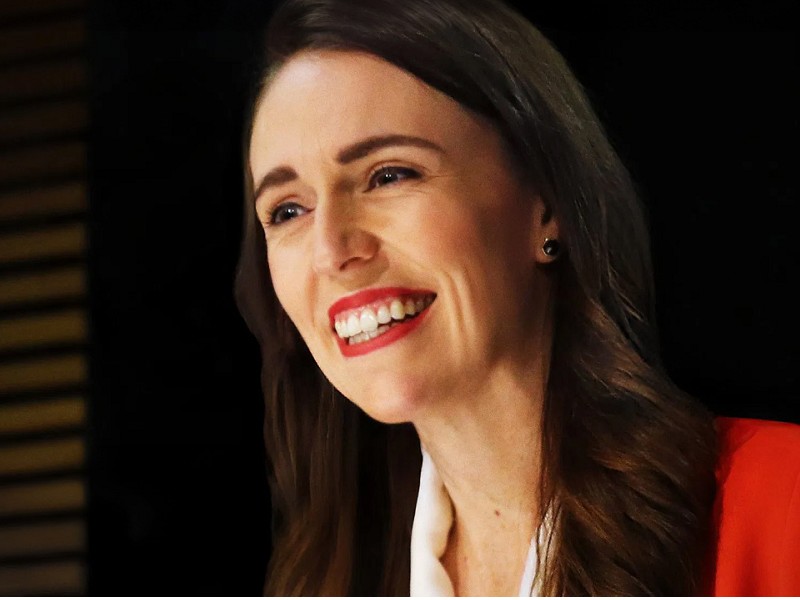
Book Tickets
|
This documentary about New Zealand’s former PM, records a shrewd but likable leader who did without the usual politician’s defences, showing an actual human being in charge, for once.
Jacinda Ardern was the target of misogyny, but never seems hardened, embittered or even changed all that much. The film, with intimate access, tracks her life with broadcaster (and future husband) Clarke Gayford as she became the smart and personable new leader of the New Zealand Labour party in 2017 and then, in short order, prime minister – first in coalition and then on her own, the world’s youngest female elected leader.
The bulk of the docu mixes archive footage and backroom discussions with intimate video shot by Gayford. One highlight includes how Ardern dealt with the Christchurch mosque shootings with utter sincerity and compassion; she spent her political capital shrewdly at that moment by banning assault rifles. The world loved her for it.
Offering an eye-opening insider perspective that comes as a reminder of what conviction politics looks like when it is maintained even under extreme pressure, Prime Minister holds appeal well beyond New Zealand’s shores.
No Other Choice (15)
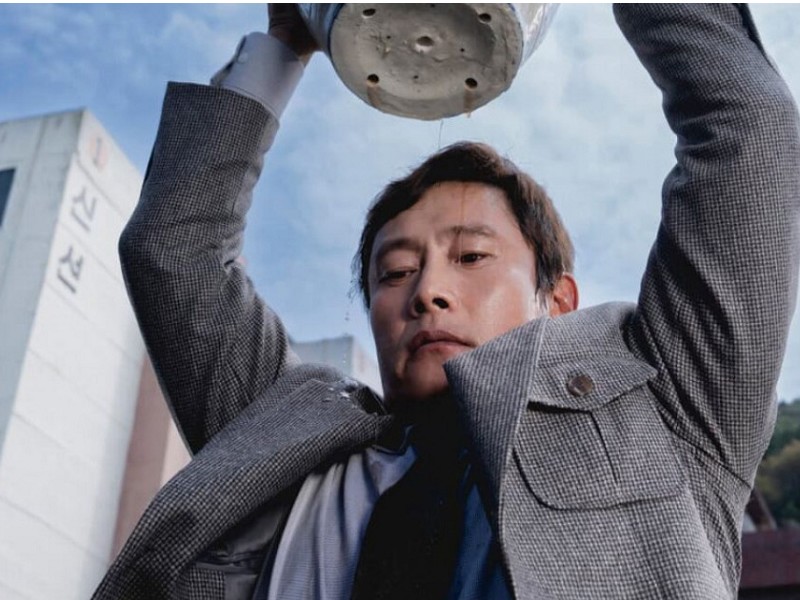
(Subtitled)
Language: Korean
Master filmmaker Park Chan-wook returns with another delicious slice of nation satire, as Lee Byung-hun plots to bump off the competition.
Byung-hun is family man You Man-su, who lives in a gorgeous home with his wife Miri (Son Ye-jin), their children Si-One and Ri-One, and two beautiful dogs. Man-su is devastated after being laid off from his paper company management role after 25 years, and despite assurances from his wife he’ll find a new job soon, 13 months later he’s stacking boxes in a warehouse.
After a series of calamities, with house foreclosure pending, Man-su becomes truly desperate, and after becoming mildly obsessed with the cool middle manager at Moon Paper, realises the job market is simply too competitive. Wouldn’t it be easier if, let’s say, he thinned out the herd? Yet Man-su isn’t as cut-throat as he fancies himself, and his murder plot isn’t particularly thought out.
Parallels to Bong Joon-ho’s Parasite are understandable, but this easy comparison undermines the specificity of both films. While the two directors are peers with shared interests, and there is undoubtedly some common DNA, No Other Choice boldly confronts erasure of our humanity as we’re homogenised by capitalism.
EOS: Turner & Constable (PG)
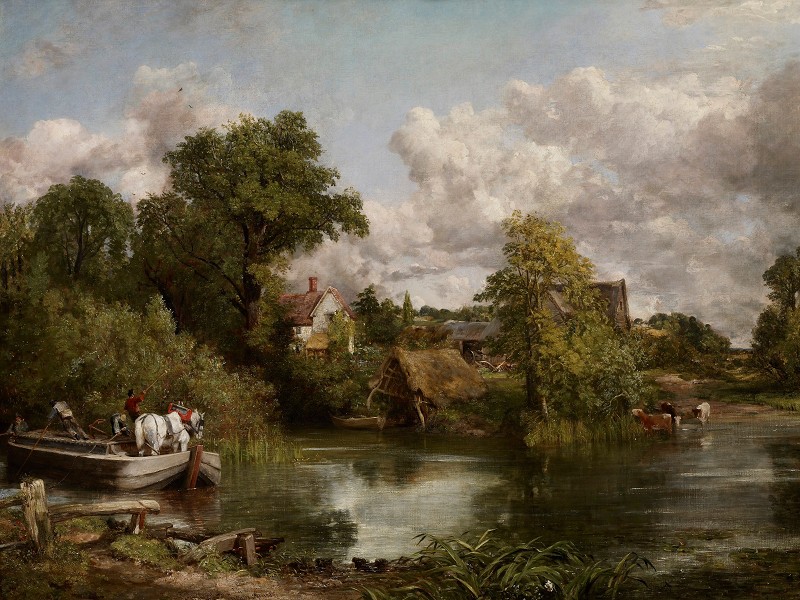
Celebrating the 250th anniversary of their births, this unmissable new documentary explores Turner and Constable’s intertwined lives and legacies.
J.M.W Turner and John Constable are routinely regarded as the greatest English landscape painters and among the greatest painters in art history’s long and complicated narrative. Born a year apart and both alumni of the Royal Academy schools in London, each was keenly aware of what the other was doing, and a fierce rivalry emerged.
Sometimes, they sought the same collectors and painted the same subjects. Turner’s blazing sunsets and sublime scenes from his travels and Constable’s idealised depictions of beloved places from home whipped the public of the time into a frenzy of enthusiasm. Constable represents the very best of the old school of realism and pastoral nostalgia; Turner, an exciting new way of depicting emotion and dreamlike impressions. Critics compared their starkly different styles to a clash of ‘fire and water’. Don’t miss this opportunity to see these greats side-by-side, as they so often were in life, on the big screen for the first time. Don’t miss.
Send Help (15)

Book Tickets
|
Horror legend Sam Raimi (Evil Dead) returns to his gonzo grizzly roots as Rachel McAdams and Dylen O’Brien fight for survival in tropical Hell.
This deliciously slice of corporate satire sees McAdams as Linda Liddle, a tragic fusspot who brings stinky tuna sandwiches to the office. She is also a dedicated, decisive, diligent – the one who is keeping her corporate accounting firm afloat by actually doing the work.
Her new boss, Bradley Preston (O’Brien), is a jackal with an immaculately trimmed beard whose first order of business is to tell Linda to her face that she should not expect a promised promotion any time soon. Luckily for Linda, their business trip is cut short when the private jet crashes, and the two of them are stranded on a deserted island. As an avid survivalist, Julia takes control of the situation and the tables turn; she is now the boss.
Gnarly, gross and delightfully unconventional, this is exactly the kind of Raimi film his fans have been waiting for. Carried by a committed, no-holds-barred McAdams performance, Send Help is a raucous, rambunctious romp through the jungle.
One Battle After Another (15)
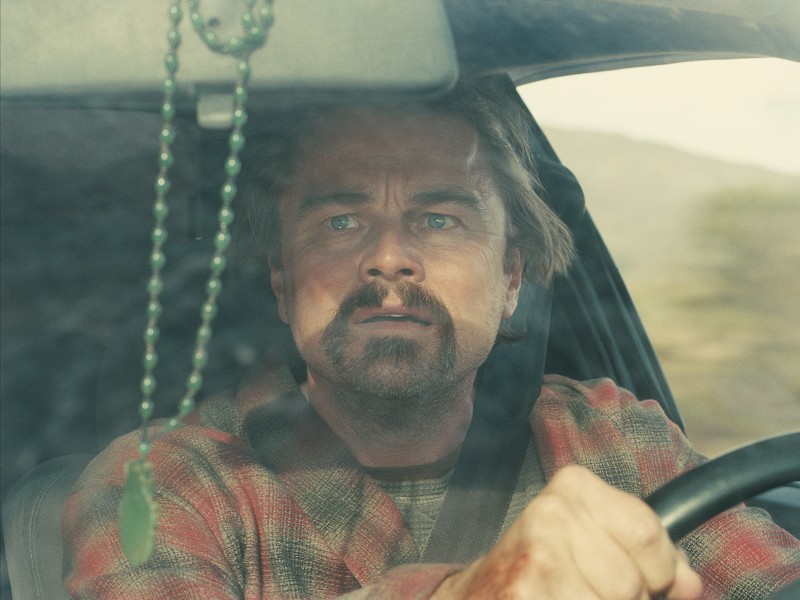
Paul Thomas Anderson brilliant take on the American nightmare is packed with spectacle, laughter, and emotional depth.
Loosely adapted from Thomas Pynchon’s 1990 novel Vineland, One Battle After Another follows Bob (Leonardo DiCaprio), a washed-up revolutionary surviving off-grid with his fiercely independent teenage daughter Willa (Chase Infiniti). When an old nemesis (Sean Penn) resurfaces and Willa disappears, Bob turns to former civil rights revolutionary Sensei Sergio (Benicio del Toro) and the two are thrust into a high-stakes scramble that blends absurdism, violence, and dark comedy.
It’s just great. Every encounter, from breathtaking car chases to remorseless shootouts, is infused with both danger and wit, creating a dizzying, unpredictable ride. Anderson teams once again with Radiohead’s Johnny Greenwood, whose chaotic, thrilling score elevates every sequence with pounding piano riffs and swirling tension.
And performances. DiCaprio is captivating as conflicted antihero Bob, while Infiniti proves extraordinary in her ability to match his intensity. Right behind them is Sean Penn, who delivers one of his most audacious roles in years, injecting an unpredictably wild energy. It’s a gutsy, visually dazzling triumph, a film that reminds us why PTA remains one of American cinema’s most vital voices
Sinners (15)
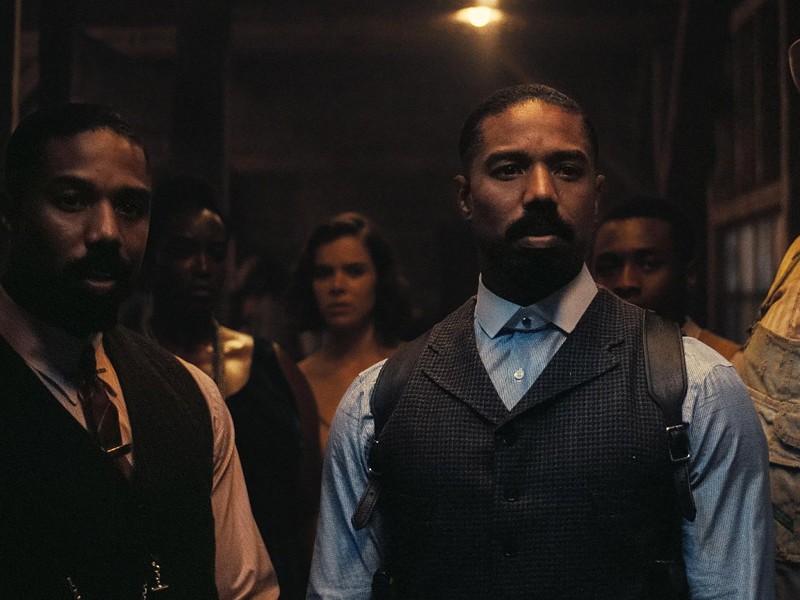
Book Tickets
|
A haunting southern gothic brimming with soul
and style.
Ryan Coogler’s Sinners is a thrilling and deeply atmospheric blend of supernatural horror and Southern blues, delivering a genre-defying tale rich in emotion.
Set in the 1930s American South, the story follows twin brothers Smoke and Stack (both played by Michael B. Jordan), who return to their hometown seeking atonement for past sins. But their homecoming quickly spirals into a chilling confrontation with a malevolent force tied to the region’s cursed musical roots.
With themes of redemption, legacy, and the darkness that lingers within us, the film strikes a perfect harmony between haunting narrative and electrifying spectacle.
Jordan delivers an effortless dual performance, shifting between the brothers’ complexities with grit and charisma. Hailee Steinfeld transforms in a strikingly mature role as Mary, while newcomer Miles Caton makes a powerful debut. Coogler’s direction is bold, magnetic, and brimming with energy. Alive with rhythm, dread, and defiant joy, it’s a soul-stirring and stylish ride.
Back To The Future II (PG)
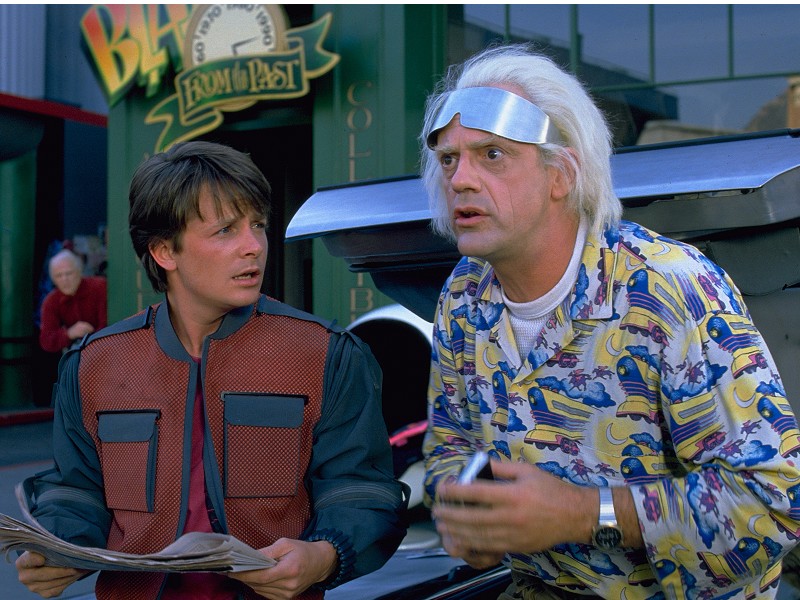
Book Tickets
|
Robert Zemeckis’s 1989 sequel trades the original’s breezy charm for a fast, intricate scramble through fractured timelines, complete with hoverboards, holograms and self-tying trainers.
Starting where we left off in part one, Doc Brown barrels back into Marty McFly’s life with urgent warnings about 2015, sending them hurtling forward to fix a problem involving Marty’s future children. One reckless detour hands Biff Tannen a sports almanac and splinters history, creating an alternate 1985 where Biff reigns supreme and Marty’s family is in ruins. The only solution lies in revisiting 1955 and carefully navigating events already set in motion.
Part II thrives on momentum. It’s an undeniably inventive, dizzying puzzle box of intersecting selves and ticking-clock reversals. The first act’s vision of 2015 remains a highlight, packed with playful detail and sharp imagination. Michael J. Fox is, of course, brilliant, juggling multiple roles, while Christopher Lloyd’s wild-eyed Doc and Thomas F. Wilson Biff bring big laughs.
Zemeckis maybe let the machinery of the plot race ahead of character and charm. But he also created a beloved franchise in the process. And for all its breathless chaos, there’s still enough imagination and momentum to make the ride worthwhile.
The Secret Agent (15)
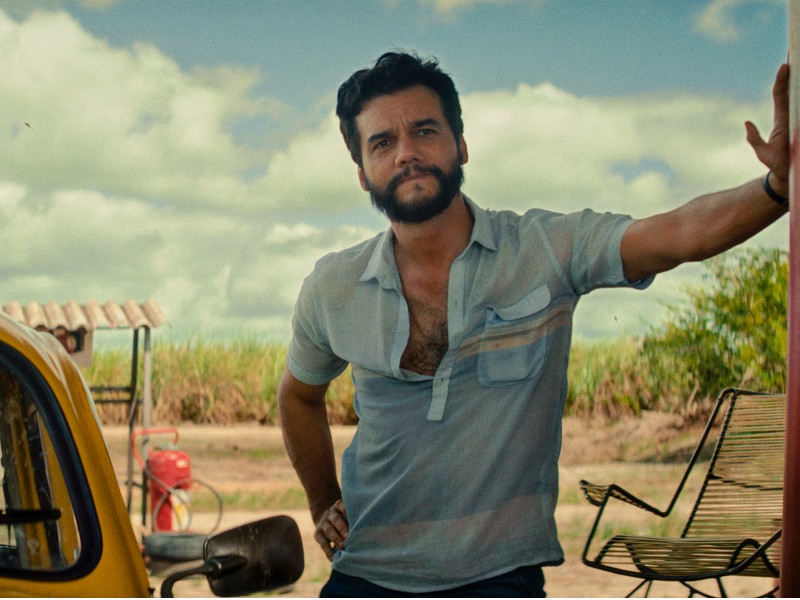
Book Tickets
(Subtitled)
Language: Portuguese
Sprawling and quietly nerve-jangling, this brilliant Brazilian political-thriller from writer-director Kleber Mendonça Filho blends political intrigue, family drama and flashes of violence into an absorbing portrait of a country on edge.
Set in 1977 Recife during Carnival, the story centres on Marcelo, a tech expert forced into hiding in a seaside boarding house run by the formidable Sebastiana. Reconnecting with his young son while searching for answers about his long-missing mother, Marcelo discovers that hired killers have arrived from São Paulo, sent by a powerful businessman determined to erase him. As the police look the other way and the festivities rage on, danger inches ever closer.
Mendonça Filho fills the frame with sharply observed period detail and a gallery of vivid supporting characters, each adding humour, warmth or menace. Wagner Moura anchors it all with a restrained, deeply human performance, capturing a father’s tenderness alongside a man’s growing fear. His scenes with the child are disarmingly gentle, lending emotional weight to the mounting suspense.
Loose in rhythm yet precise in design, the film builds toward jolts of shocking intensity, while its reflections on corruption and survival are pointed and unsettlingly current.
H is For Hawk (12A)
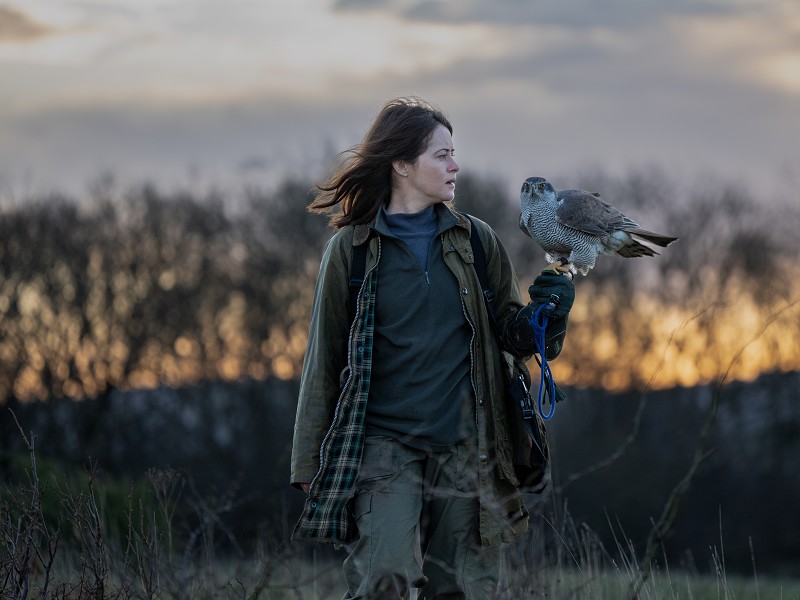
Book Tickets
Claire Foy leads this thoughtful adaptation of Helen Macdonald’s memoir.
Helen is a young academic whose life is upended by the sudden death of her father, a celebrated photojournalist and her closest companion. Struggling to process the loss, she impulsively buys a goshawk, Mabel, retreating from the world to train the bird in the countryside. The demanding routines of falconry, full of risk, discipline, and frustration, become a way for Helen to channel her grief, even as they isolate her further from friends and family.
Grief is turned into something quietly tangible, blending personal loss with an unexpected bond between human and animal. Warm but restrained, it finds meaning not in grand statements but in patient observation.
Claire Foy gives a finely tuned performance, capturing Helen’s inward spiral with sensitivity and control. Her scenes with Brendan Gleeson, seen in affectionate flashbacks, establish a deep emotional foundation that makes the loss keenly felt. The falcon itself becomes a striking presence, filmed with care and respect, neither sentimentalised nor simplified.
While a few scenes lean toward conventional drama, the film is strongest when it embraces uncertainty. Quiet, observant, and occasionally untidy, it reflects grief as something lived through rather than resolved.
EPIC: Elvis Presley In Concert (12A)
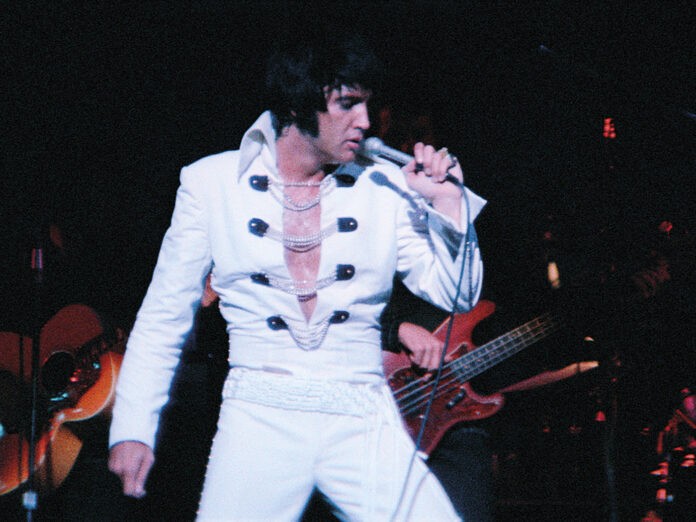
Book Tickets
|
Baz Luhrmann reshapes rare concert footage and unheard interviews into an immersive portrait of Elvis Presley at full power.
For decades, 59 hours of professionally shot material from Presley’s early Seventies shows sat locked away in a Kansas salt mine, unseen and largely mythical even among devoted fans. When Luhrmann persuaded Warner Bros. to unearth the archive while preparing his 2022 biopic, what emerged was far more than performance reels. Multi-camera concert footage captures Elvis at his peak as a live artist, while backstage moments and candid reflections reveal a man both commanding and curiously exposed.
Rather than assembling a conventional cradle-to-grave documentary, Luhrmann opts for something more fluid and impressionistic. Presley effectively narrates the film himself through archival interviews and recordings, his voice guiding viewers through fame, doubt and creative hunger. The effect is intimate without being reverential, allowing flashes of vulnerability to sit alongside the swagger.
There is fresh force in being reminded that this global icon began life in deep poverty before becoming the most famous young performer on the planet. By letting the man speak and sing for himself, the film offers a vivid, unvarnished encounter with the King.
Sentimental Value (15)
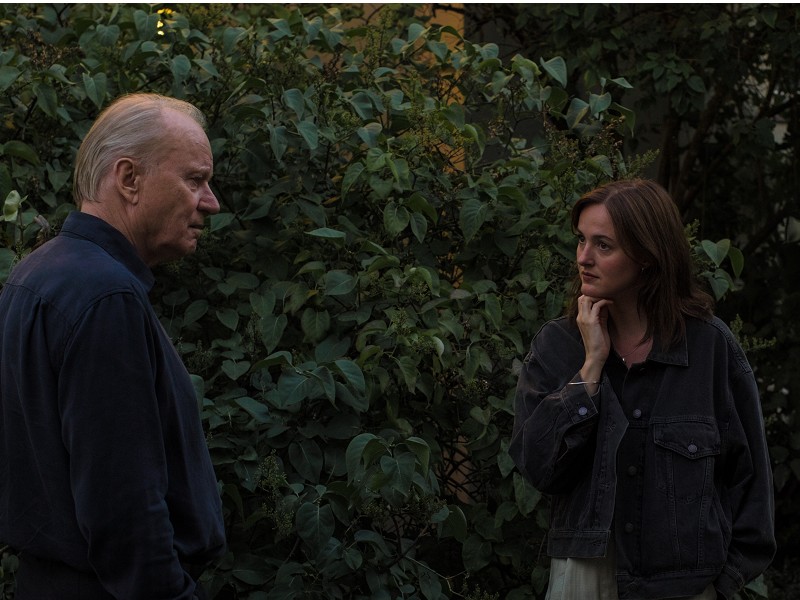
Book Tickets
|
(Subtitled)
Language: English, Norwegian
Nora (Renate Reinsve) is a celebrated actress undone by panic attacks she’s inherited from her estranged father, Gustav (Stellan Skarsgård). When he turns up late at her mother’s funeral, Nora and her sister Agnes brace for whatever comes next. His plan? To shoot his new film in their childhood home, casting Nora in a role he wrote specifically for her. When she refuses, he turns instead to an American star (Dakota Fanning), while unresolved wounds push their already fragile family into deeper turmoil.
Trier interweaves past and present gracefully, letting scenes slip between memory, imagination and cinema. Reinsve gives Nora a vivid inner world, her guardedness revealing the emotional cost of carrying her family’s history, while Skarsgård’s performance captures a man desperate to repair what he’s broken.
As long-buried secrets surface, the film becomes a moving reflection on inheritance and how pain echoes across generations. With beautifully observed characters and a film-within-a-film framework, it becomes a layered study of connection, regret, and the stories families tell to survive one another.
Wuthering Heights (15)
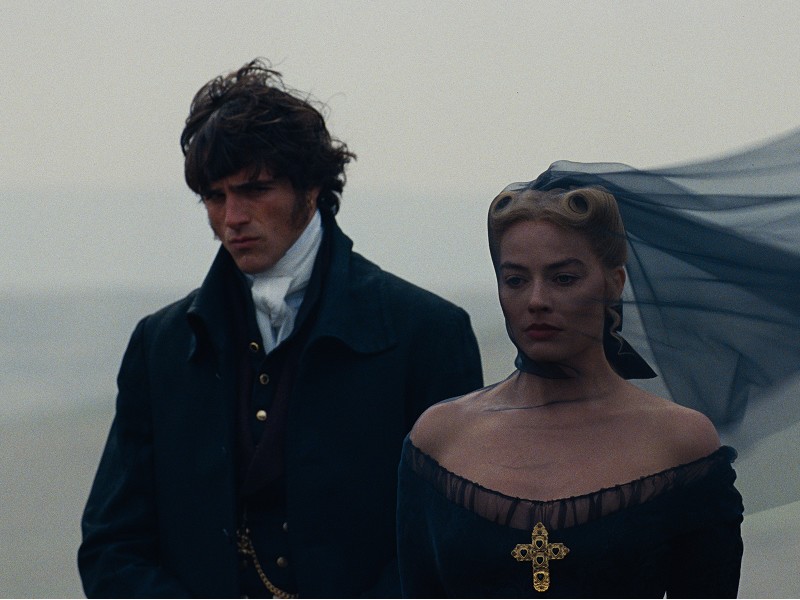
Book Tickets
Emerald Fennell gives Emily Brontë’s 1847 classic a lush, feverish overhaul, stripping back subplots and leaning hard into the novel’s obsession, desire and self-destruction.
On the Yorkshire moors, young Cathy Earnshaw grows up alongside the foundling Heathcliff, taken in by her father at Wuthering Heights. Their bond is fierce but constrained by class and expectation. As adults, Cathy chooses security over passion, marrying the respectable Edgar Linton and moving to Thrushcross Grange. Years later, Heathcliff returns with money and purpose, determined to reclaim what he believes belongs to him.
Fennell heightens the sensuality and spite simmering beneath the surface, staging the romance as something raw and volatile rather than wistful.
The design is richly textured, all mud, mist and candlelight, matching the characters’ heightened emotions. Margot Robbie gives Cathy a sharp, restless edge, torn between selfish impulse and genuine longing, while Jacob Elordi’s Heathcliff balances wounded devotion with gathering menace.
At times indulgent and deliberately provocative, this is “Wuthering Heights” with it’s quotation marks proudly on display. It embraces excess. But its focus on pride, class and catastrophic choices keeps it’s roots steeped in tragedy.
Goat (PG)

Book Tickets
|
A diminutive young buck aspires to compete with rhinos and horses in ‘roarball’ in this lightning-speed basketball animation.
Will Harris is a goat, referred to in the hyper-aggressive world of roarball as a “small” and, as such, could never make it as a player going up against horses, crocs, gorillas and bears.
Will’s dream is to play roarball for a living, and his hero is the iconic black panther Jett Fillmore, the greatest player in the league who captains Will’s own local team. His endless tenacity and love of the game ends up leading to a viral video which lands him a social media-friendly spot as the sixth player on the team, but playing alongside his hero ends up being a psychological nightmare, especially when he starts to outplay the ageing legend.
The main thrust of this story is simply some dumb, fun, obvious lessons about teamwork and its important relevance with regards to dreamwork. At its heart, GOAT is a classic underdog story, with all the weary clichés that it must bring: think The Mighty Ducks with a Zootropolis twist and you’re not far off.
Peaky Blinders: The Immortal Man (TBC)
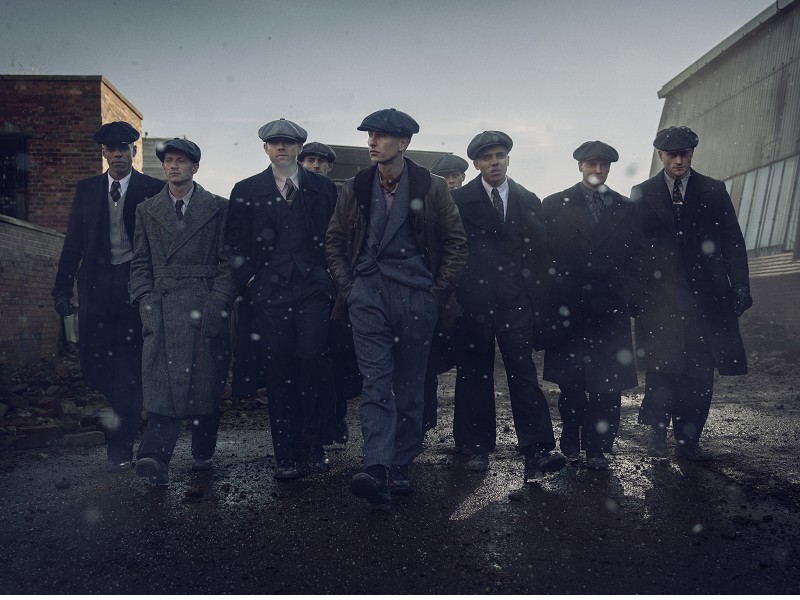
Book Tickets
|
Steven Knight brings Peaky Blinders to the big screen with The Immortal Man, a brooding wartime chapter that trades smoky backrooms for bombed-out streets.
It is 1940, and Birmingham is under siege as World War II rages. Nearly two decades have passed since we first met Tommy Shelby, and the former gang leader now moves through a city scarred by the Blitz, balancing political influence, old rivalries and the weight of his own reputation. As tensions rise at home and abroad, familiar faces return, alliances shift and unfinished business refuses to stay buried.
Cillian Murphy slips back into Tommy’s overcoat with ease, playing him as a man hollowed out but unbowed, running on willpower and memory. The performance is flintier, quieter, all the more compelling for it. Stephen Graham continues his bid to break the Guinness World Record for appearing in every television drama made in a five-year period, while Sophie Rundle is also back as Tommy’s sister Ada Shelby. Knight stages it all with sweeping, bomb-shattered visuals and a score that pounds like distant artillery.
A fitting bridge from small to big-screen, it expands the legend without losing its grit.
All That's Left of You (12A)
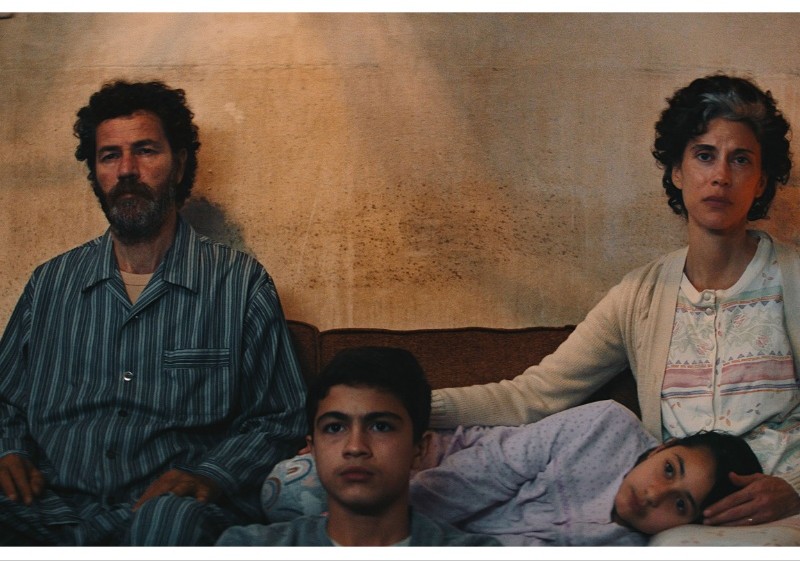
(Subtitled)
Languages: English, Arabic
Spanning more than six decades, this sweeping drama traces modern Palestinian history through the fortunes of one family, blending intimate drama with seismic political change.
The story begins in 1948 as young Salim flees Jaffa with his mother and siblings while his father stays behind and is imprisoned. Decades later, Salim is a husband and father himself, trying to build a life under tightening restrictions. A humiliating encounter at an Israeli checkpoint leaves deep scars, and by the late 1980s his teenage son is caught up in protest and violence. The narrative loops back and forth across the years, showing how displacement, loss and resilience echo through generations.
Writer-director Cherien Dabis keeps the focus squarely on personal experience rather than political lecture, even as real historical events shape every turn. The casting of Mohammad Bakri and his sons Adam and Saleh as three generations adds emotional weight and continuity, while Dabis and Hiam Abbass Zreik bring strength and intelligence to women determined to hold their families together.
The conflict is plain to see, and the villains are starkly drawn. The effect is stirring and sobering, grounding vast history in recognisable human cost
I Swear (15)
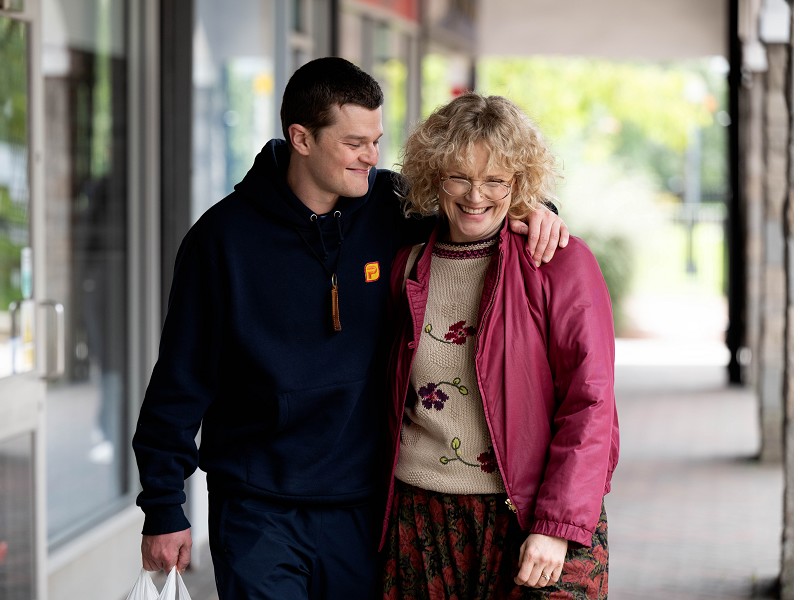
Book Tickets
|
Hot off the heels of its astonishing (and unsurprising) multiple wins from this year’s BAFTA awards, I Swear comes to The Rex in all its unapologetic glory.
This terrifically warm, generous film is about real-life Scotsman and activist John Davidson (the excellent Robert Aramayo) who has Tourette syndrome (specifically coprolalia), with its tics, compulsive behaviour patterns and random obscene shouts. As John lines up to receive his MBE from Queen Elizabeth II, his nerves get the better of him. “F**k the Queen!” he blurts out. It’s a deliciously iconoclastic moment, and one that serves both sides of this delightful film’s two wolves: the warm-and-fuzzy teatime template that it follows, and the involuntarily foul-mouthed subject that it tracks.
It’s when he meets Dottie (Maxine Peake), the mother of a friend and a mental-health nurse brimming with warmth and kindness, that life becomes tolerable. I Swear is also very, very funny, without ever punching down by recognising the inherent absurdity of John’s offensive tics. It is a film which can both entertain, and bring awareness to the condition, which today, is still greeted with fear and unfair negativity.
Nuremberg (15)
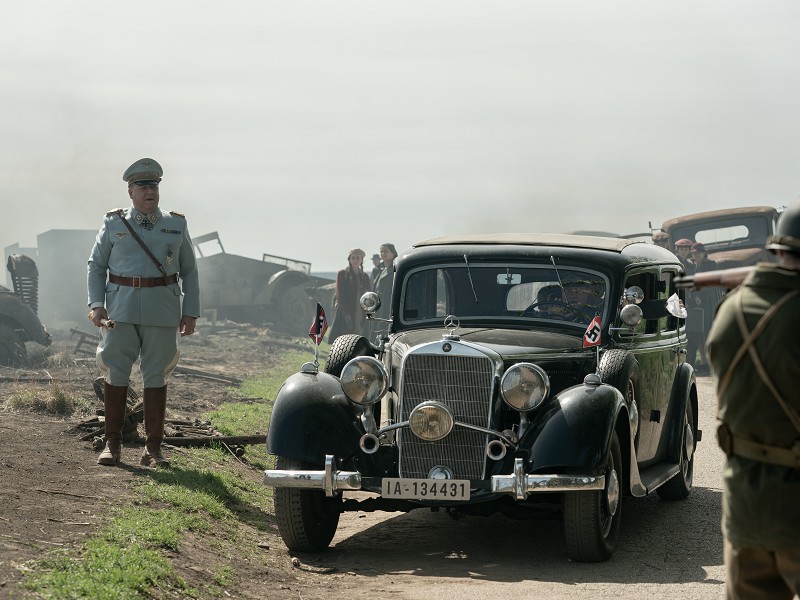
Book Tickets
|
James Vanderbilt turns the Nuremberg trials into a tense, sharply crafted historical thriller that plays with the urgency of a political nail-biter.
Drawing on firsthand accounts, this post-war drama follows the scramble to bring Nazi leadership to justice after Hitler’s death. When Hermann Göring (Russell Crowe) is captured, military psychiatrist Douglas Kelley (Rami Malek) is dispatched to assess him, working closely with translator Howie (Fabien Frankel). As Kelley probes Göring’s charm and cunning, US Supreme Court Justice Robert Jackson (Michael Shannon) fights to build a legally sound tribunal that the world will accept. With atrocities emerging and political pressure mounting, the question becomes not just how to try these men, but what justice can look like in the aftermath of unimaginable horror.
Vanderbilt keeps the drama lively with vivid behind-the-scenes details and a large, engaging ensemble. Crowe’s magnetic swagger makes Göring a disturbingly compelling presence, while Malek brings a cool, coiled intelligence that turns their exchanges into the film’s sharpest scenes. Frankel adds warmth as the quietly perceptive translator, and the supporting cast contribute texture even when the script gives them limited space.
Handsomely mounted and briskly paced, Vanderbilt’s film balances procedural intrigue with psychological tension, offering a fresh, absorbing retelling of history without overstating its conclusions
Zootropolis 2 (PG)

Book Tickets
|
Zootropolis 2 is pure delight, every bit as exciting, and heartwarming, and imaginative as the Oscar-winning original, and maybe even funnier.
Those heroes are, again, the opposites-in-temperament Judy Hopps (Ginnifer Goodwin), a bunny who is enthusiastic, and committed to justice, and Nick Wilde (Jason Bateman), a fox who is a former con artist. They met on opposite sides of the law in the first film, but now Nick has joined the police as Hopps’ partner.
They immediately get into trouble after ignoring orders from Police Chief Bogo (Idris Elba) and end up on a wild chase after a perpetrator in a catering van labeled “Amoose Bouche” (there are many such animal related sight-gags).
This leads them to uncover a massive conspiracy: long ago reptiles, and especially snakes, were ostracised from Zootropolis, and their entire way of life was scrubbed in favour of expansion by the “superior” mammals (the mirroring of current events isn’t subtle, but highly welcomed). Zootropolis 2 is zippy, and highly enjoyable, but it also has the kind of heart that has too long seemed to be missing from other Disney offerings, and many other animated films for that matter.
Mother's Pride (12A)

Book Tickets
An easygoing, big-hearted salute to the British pub, this comedy-drama raises a glass to community spirit at a time when locals are disappearing from the high street.
Set in a struggling neighbourhood boozer facing closure, the story centres on a grieving family who gamble on brewing their own beer to keep the doors open. What begins as a desperate measure slowly gathers momentum, carrying them all the way to the Great British Beer Awards. Along the journey come bruised egos, old grudges and small-town rivalries, but also renewed friendships and a shared determination to protect a place that means more than just pints and crisps.
From the team behind Finding Your Feet and Fisherman’s Friends, directors Meg Leonard and Nick Moorcroft keep the tone warm and accessible, balancing gentle humour with moments of reflection. The ensemble cast, including Jonno Davies, James Buckley, Gabriella Wilde, Mark Addy and Martin Clunes, bring lived-in charm and comic bite to characters who feel instantly recognisable.
With thousands of pubs lost in recent years, Mother’s Pride taps into a genuine anxiety while offering a hopeful reminder that collective effort, however modest, can still make a difference.